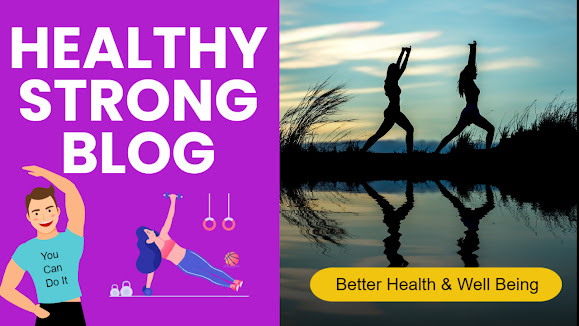Sleep Cycles and Stages Explained: Why You Feel Like a Zombie Without Them
Sleep Cycles and Stages Explained: Why You Feel Like a Zombie Without Them
Ever wake up feeling like a bus hit you... even after a full night's sleep? (No? Just me? Cool.)
Well, it might not be how long you slept — but how well you cycled through the glorious symphony known as your sleep stages.
Let's break it down, nice and easy. No snoozefest science lecture here — just the good stuff.
What Are Sleep Cycles, Anyway?
Picture sleep as a VIP concert. You can’t just walk in, hear one song, and bounce. You have to go through all the acts: warm-up bands (light sleep), headliner (deep sleep), encore (REM dreamland).
Each night, your brain shuffles through 4 main stages in about 90-minute cycles, and it repeats this set list 4–6 times before your alarm screeches at you.
If the set gets interrupted (thanks, noisy neighbors or late-night TikTok scrolling), your body misses key parts of the show — and that’s when you wake up feeling awful.
Meet the Sleep Stages: Your Body’s Night Shift Workers
Each sleep stage has a job. Skip one, and your brain/body start sending passive-aggressive emails to each other.
Stage 1: NREM 1 (Light Sleep — The Welcome Mat)
-
What's happening? You're drifting. Muscles relax, heartbeat slows, and your brain starts waving goodbye to the conscious world.
-
How long? About 1–5 minutes.
-
Fun fact: If someone says your name right now, you might deny you were sleeping. (You liar, you.)
Science says: According to the National Institute of Neurological Disorders and Stroke (NINDS), Stage 1 acts as a transition, not where major restoration happens — but it’s crucial for setting the tone (NINDS, 2020).
Stage 2: NREM 2 (Light Sleep — The Gatekeeper)
-
What's happening? Brain activity slows even more. Your body temperature drops, heart rate steadies, and brain waves show short bursts of activity called sleep spindles.
-
How long? About 25 minutes per cycle... and you spend about 50% of your night here!
Science says: Sleep spindles may protect the brain from waking up at every little sound — like your cat deciding to knock over everything at 3 AM.
A study in The Journal of Neuroscience (Fogel et al., 2007) found these spindles play a big role in memory consolidation. So thank Stage 2 for helping you remember why you went into the kitchen.
Stage 3: NREM 3 (Deep Sleep — The Heavy Lifter)
-
What's happening? This is where your body busts out the tool belt and starts serious repairs. Growth hormones surge, cells repair themselves, and your immune system trains for battle.
-
How long? About 20–40 minutes early in the night (gets shorter as morning nears).
-
Also called: Slow-wave sleep or Delta sleep (because of the slow, big delta brainwaves).
Science says: Deep sleep is non-negotiable if you want to feel refreshed. According to Sleep Medicine Reviews (Besedovsky et al., 2012), deep sleep enhances immune defenses and supports physical recovery — no wonder it’s called restorative sleep.
Advice: Missing deep sleep = feeling like you need 17 cups of coffee before noon.
Stage 4: REM Sleep (Dreamland and Brain Gym)
-
What's happening? Your brain lights up like Times Square. Dreams happen. Memory files itself. Emotional junk gets sorted (hopefully into the trash bin).
-
How long? Starts short early in the night, but by morning, REM can stretch up to an hour.
-
Why REM matters: Creativity, emotional health, memory retention.
Science says: The American Academy of Sleep Medicine states REM is critical for mood regulation and cognitive functions (AASM, 2020). Lack of REM = cranky, forgetful, emotional rollercoaster (aka, Monday mornings).
What Happens If Sleep Cycles Get Disrupted?
Short version? It’s not pretty.
When your cycles are thrown off (from stress, blue light, caffeine, etc.), you might:
-
Wake up groggy
-
Struggle with memory
-
Get sick more often
-
Gain weight easier (your metabolism gets confused)
-
Feel extra moody (and no, it’s not just "one of those days")
Study spotlight: Research from Harvard Medical School (Walker, 2017) showed chronic sleep disruptions increase risk for depression, heart disease, and even Type 2 diabetes. Sleep isn’t just for dreamers — it’s legit survival fuel.
How to Protect Your Sleep Cycles Like a Boss
Here’s how to keep your sleep stages flowing like a smooth playlist:
✅ Stick to a consistent sleep schedule (yes, even on weekends — sorry)
✅ Ditch screens 1 hour before bed (blue light = bad news)
✅ Keep your room cool, dark, and quiet
✅ Cut caffeine after 2 PM (yes, even if you think you’re "immune")
✅ Limit late-night alcohol (it messes with REM, even if you pass out fast)
✅ Get morning sunlight (resets your internal clock)
TL;DR: Sleep Stages Are the Unsung Heroes of Feeling Human
You’re not just sleeping — you’re running a whole overnight repair shop. Each stage has a role, and skipping any one of them can wreck your energy, mood, and even health.
So next time someone tells you "sleep is for the weak," kindly inform them — with science — that sleep is for the smart.
And then take a nap, because you deserve it.
Citations:
-
National Institute of Neurological Disorders and Stroke (NINDS). (2020). Brain Basics: Understanding Sleep.
-
Fogel, S. M., et al. (2007). Sleep spindles and memory consolidation. Journal of Neuroscience.
-
Besedovsky, L., et al. (2012). The sleep-immune crosstalk in health and disease. Sleep Medicine Reviews.
-
American Academy of Sleep Medicine (AASM). (2020). The Importance of REM Sleep.
-
Walker, M. (2017). Why We Sleep: Unlocking the Power of Sleep and Dreams.
NCWellnessHub.com (2025). Sleep What One Night of Bad Sleep Really Does To Your Body









Comments
Post a Comment